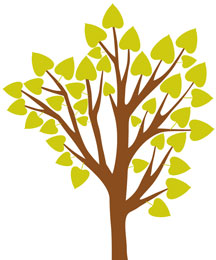
International Forestry Plan
Montreal Process Standardized in ASTM D7480
An international group of forestry experts gathered in 1994 to create a method for improving the process of forest management and certification around the world. The resulting plan, called the Montreal Process, is the basis of an ASTM International standard developed by Committee D07 on Wood.
The standard, D7480, Guide for Evaluating the Attributes of a Forest Management Plan, is under the jurisdiction of ASTM International Subcommittee D07.08 on Forests.
According to Donald DeVisser, acting executive vice president, West Coast Lumber Inspection Bureau, Portland, Ore., the member countries behind the Montreal Process (Argentina, Australia, Canada, Chile, China, Japan, Republic of Korea, Mexico, New Zealand, Russia, United States and Uruguay) account for 90 percent of the world's temperate and boreal forests, as well as 60 percent of all forests, 45 percent of international trade in timber and timber products, and 35 percent of the world's population. The Montreal Process provides seven criteria as guidelines for policymakers to use in assessing national forest trends and progress toward sustainable forest management:
- Conservation of biological diversity;
- Maintenance of productive capacity of forest ecosystems;
- Maintenance of forest ecosystem health and vitality;
- Conservation and maintenance of soil and water sources;
- Maintenance of forest contribution to global carbon cycles;
- Maintenance and enhancement of long-term multiple socioeconomic benefits to meet the needs of societies; and
- Legal, institutional and economic framework for forest conservation and sustainable management.
The seven criteria are accompanied by an additional 67 associated indicators. "The strength of the Montreal Process is the emphasis placed on evaluating a forest management plan for a country, rather than a specific forest region or private ownership," says DeVisser. "This strategy works best in countries where the predominant forestry ownership is government-based. D7480 adapts these principles to better fit North American forest ownership, which is primarily private sector based."The Montreal Process is encompassed in D7480, an ASTM standard to be used by developers of standards and other documents in the field of renewable resources to evaluate whether specific forest management systems meet the intent of sustainable forest management.According to its scope, the criteria listed within D7480 are important for the following tasks:To describe, assess and evaluate progress toward sustainability of forest management at the national, regional or individual forest level;To inform policy debate at regional, national and international levels; andTo evaluate the attributes of a forest management certification or evaluation system with a specific combination of forest management principles, practices or adaptations, where such practices are evaluated against a set of prescribed standards. DeVisser says that the combination of D7480 and the recently approved D7612, Practice for Categorizing Wood and Wood-Based Products According to Their Fiber Sources (see "Categorizing Wood" on page 42), will provide example indicators by which to measure sustainable forestry and the means to categorize wood products according to their fiber sources. "What remains is to have the current North American certification agencies and government forest practices statutes rated according to both of these standards and appropriately categorized by an independent source," says DeVisser.
 SN Home
SN Home Archive
Archive Advertisers
Advertisers Masthead
Masthead RateCard
RateCard Subscribe
Subscribe Email Editor
Email Editor